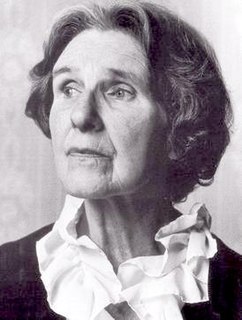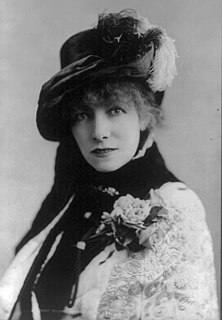A Quote by William Osler
Breathes there a man with soul so dead that it does not glow at the thought of what the men of his blood have done and suffered to make his country what it is? There is room, plenty of room, for proper pride of land and birth. What I inveigh against is a cursed spirit of intolerance, conceived in distrust and bred in ignorance, that makes the mental attitude perennially antagonistic, even bitterly antagonistic, to everything foreign, that subordinates everywhere the race to the nation, forgetting the higher claims of human brotherhood.
Quote Topics
Against
Antagonistic
Attitude
Birth
Blood
Bred
Brotherhood
Claims
Conceived
Country
Cursed
Dead
Distrust
Does
Done
Even
Everything
Everywhere
Foreign
Forgetting
Glow
Higher
His
Human
Ignorance
Intolerance
Land
Make
Makes
Man
Men
Mental
Mental Attitude
Nation
Plenty
Pride
Proper
Race
Room
Soul
Spirit
Subordinates
Suffered
Thought
Related Quotes
The idea of racial inferiority or superiority is foreign to me. I can't feel inferior or superior to another man because of race, or in any way antagonistic to him. I judge by the individual, not by his race, and have always done so. I would rather have one of my children marry into a good family of any race than into a bad family of any other race.
Why should you row a boat race? Why endure the long months of pain in preparation for a fierce half hour that will leave you all but dead? Does anyone ask the question? Is there anyone who would not go through all the costs, and more, for the moment when anguish breaks into triumph or even for the glory of having nobly lost? Is life less than a boat race? If a man will give the blood in his body to win the one, will he spend all the might of his soul to prevail in the other?
The cruelest lies are often told in silence. A man may have sat in a room for hours and not opened his teeth, and yet come out of that room a disloyal friend or a vile calumniator. And how many loves have perished because, from pride, or spite, or diffidence, or that unmanly shame which withholds a man from daring to betray emotion, a lover, at the critical point of the relation, has but hung his head and held his tongue?
I say to you with all the fervor of my soul that God intended men to be free. Rebellion against tyranny is a righteous cause. It is an enormous evil for any man to be enslaved to any system contrary to his own will. For that reason men, 200 years ago, pledged their lives, fortunes, and sacred honor. No nation which has kept the commandments of God has ever perished, but I say to you that once freedom is lost, only blood - human blood - will win it back.
The intelligent and good man holds in his affections the good and true of every land -- the boundaries of countries are not the limitations of his sympathies. Caring nothing for race, or color, he loves those who speak other languages and worship other gods. Between him and those who suffer, there is no impassable gulf. He salutes the world, and extends the hand of friendship to the human race. He does not bow before a provincial and patriotic god -- one who protects his tribe or nation, and abhors the rest of mankind.
Breathes there the man, with soul so dead, Who never to himself hath said, This is my own, my native land! Whose heart hath ne'er within him burn'd, As home his footsteps he hath turn'd From wandering on a foreign strand! If such there breathe, go mark him well; For him no Minstrel raptures swell; High though his titles, proud his name, Boundless his wealth as wish can claim; Despite those titles, power, and pelf, The wretch, concentred all in self, Living, shall forfeit fair renown, And, doubly dying, shall go down To the vile dust, from whence he sprung, Unwept, unhonor'd, and unsung.
The artist's personality must be left in his dressing-room; his soul must be denuded of its own sensations and clothed with the base or noble qualities he is called upon to exhibit.... [he] must leave behind him the cares and vexations of life, throw aside his personality for several hours, and move in the dream of another life, forgetting everything.
If what that man did in his life, makes the blood pulse through the body of others, and makes them believe deeper in something larger than life, then his essence, his spirit, will be immortalized by the storytellers, by the loyalty, by the memory, of those who honor him and make whatever the man did live forever.




































